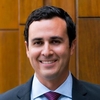Insurance Omnibus Clauses: Determining Permissive User Status in Auto Liability Cases; Exclusions and Limitations

Course Details
- smart_display Format
On-Demand
- signal_cellular_alt Difficulty Level
Intermediate
- work Practice Area
Insurance
- event Date
Monday, January 13, 2025
- schedule Time
1:00 p.m. ET./10:00 a.m. PT
- timer Program Length
90 minutes
-
This 90-minute webinar is eligible in most states for 1.5 CLE credits.
This CLE webinar will discuss omnibus clauses in auto insurance policies and the coverage issues arising from permissive use in auto liability claims. The program will offer guidance on how to determine the difficult question of whether an individual is a permissive user as well as address exclusions and limitations on coverage.
Faculty

Mr. Perry is a trial and litigation attorney with Atticus Injury Law, with a practice focused on a broad spectrum of personal injury matters, including catastrophic injury, wrongful death, government liability, and premises liability. He obtained his undergraduate degree at Cal Poly Pomona and later his law degree at UC Berkeley (“Cal”) which has consistently ranked within the Top 14 law schools in the nation. Mr. Perry handles products liability actions, as his background in mechanical engineering provides a unique ability to analyze technology-heavy consumer matters. His diverse background, exceptional credentials, intellectual curiosity, and relentless drive form the foundation of his ability to fight for his clients and secure favorable results in any type of personal injury matter.

Mr. Hernandez is known in the legal community as an expert trial strategist and has a reputation for winning the most difficult cases. In law school, he interned for the San Diego Public Defender’s office. Mr. Hernandez worked on hundreds of cases and successfully tried cases to a jury before he was a licensed attorney. His countless hours working on high-profile murder cases landed him the prestigious award of San Diego Volunteer of the Month for the County of San Diego in December 2012. Mr. Hernandez has successfully recovered millions of dollars for his clients. He is often consulted and brought on to serious cases by other attorneys in the community to aid in trial strategy and presentation. In 2019, Mr. Hernandez was selected to be a “Super Lawyer,” a title in which only the top 2.5% of attorneys hold. He continues his life work through his relentless advocacy fighting for underrepresented communities that have been injured in an accident or charged with a crime.
Description
An "omnibus clause" in standard automobile liability policies (or auto endorsements to general commercial liability policies) extends coverage to those not named in the policy but who are using a covered auto with permission. A typical scenario is a commercial vehicle being driven by a company employee or driving their own vehicle. Multiple policies and allocation issues may also come into play, such as when a business has hired a third party and both have policies that might cover the accident.
Courts rely on many different factors when determining whether the driver is a "permissive user" entitled to coverage. Assuming the insured has the capacity to grant permission, questions arise regarding what constitutes permission, whether effective and valid permission must be express or can be implied, the scope of permission and how far a driver may deviate from the terms of the grant, and whether the original permissive user may grant permission to others, to name a few.
Moreover, even if the driver is found to be a permissive user, coverage might still be denied for other reasons, and counsel for the defendant driver or an injured plaintiff needs to understand the options and how to avoid losing coverage.
Listen as this experienced panel of insurance coverage lawyers discusses how to determine whether the driver qualifies as a "permissive user," the various positions taken by different jurisdictions under recurring scenarios, and practices and strategies for navigating coverage issues for the permissive user.
Outline
- Omnibus insurance clauses: history, wording
- Applicable statutes
- Establishing permissive use
- Capacity
- Grant of permission: express or implied
- Scope of permitted use
- "Initial permission"
- "Conversion"
- "Minor deviation"
- Specific situations
- Subsequent permissions
- Ridesharing
- Unlicensed drivers
- Rental car
- Use vs. operation
- Multiple policies and allocation issues
- Effect of third-party agreements, such as master service agreements
- Exceptions and limitations of coverage
- Rights of an injured named insured against the permissive user
- Strategies where permissive user denied coverage for other reasons
Benefits
The panel will discuss these and other key questions:
- Are permissive drivers entitled to access the entire policy limits or can insurers limit the proceeds for permissive drivers?
- If more than one policy applies, how are proceeds allotted?
- Do financial responsibility laws override any policy exclusions for unauthorized users?
- In determining whether permissive use exists by express permission, what are good questions to ask? For establishing implied permission?
Related Courses

Uninsured and Underinsured Motorist Claims: Evaluating Triggers, Stacking, Subrogation, Substitution of Benefits
Tuesday, April 22, 2025
1:00 p.m. ET./10:00 a.m. PT

Managed Repair Programs in Insurance: Navigating Policyholder Disputes About Scope of Work and Quality of Repairs
Tuesday, April 15, 2025
1:00 p.m. ET./10:00 a.m. PT

Handling an Insurance Liability Claim: Roadmap for New Attorneys
Available On-Demand
Recommended Resources
Navigating Modern Legal Challenges: A Comprehensive Guide
- Business & Professional Skills
- Career Advancement
Your Guide to Professional Development with BARBRI
- Learning & Development
- Business & Professional Skills
- Career Advancement
- eDiscovery
Building Your Book: Strategies to Secure Long-Term Success
- Business & Professional Skills
- Career Advancement
- Talent Development